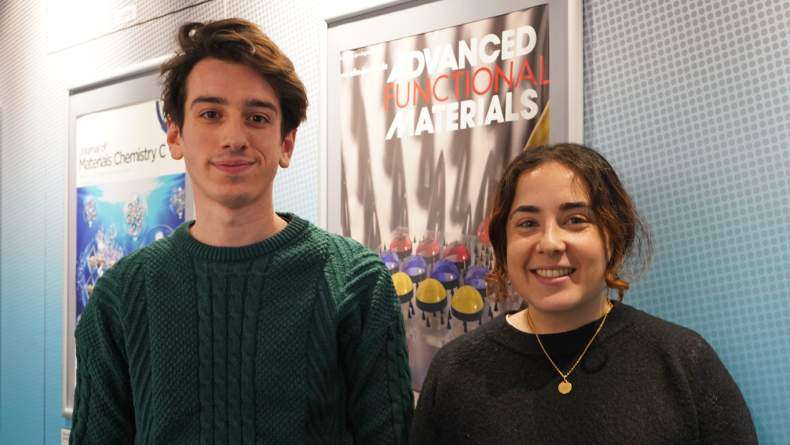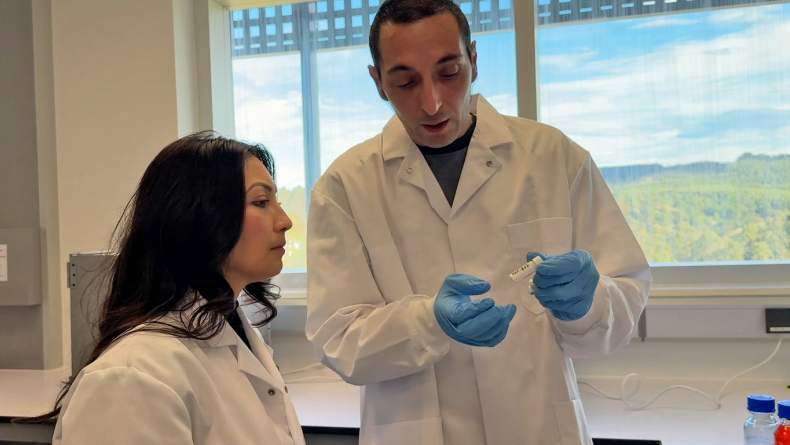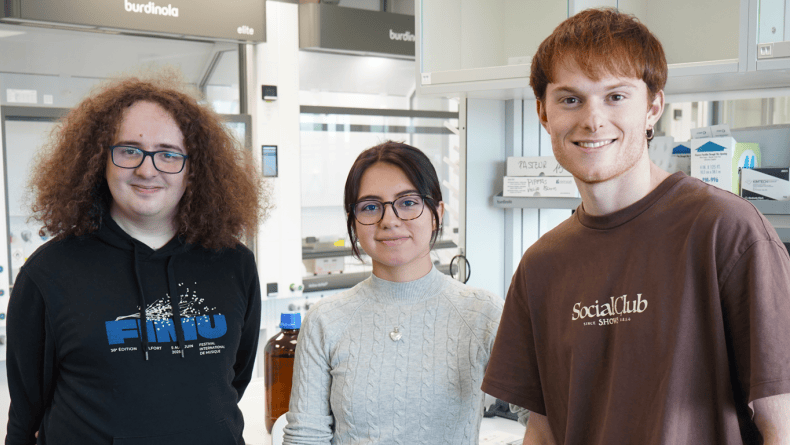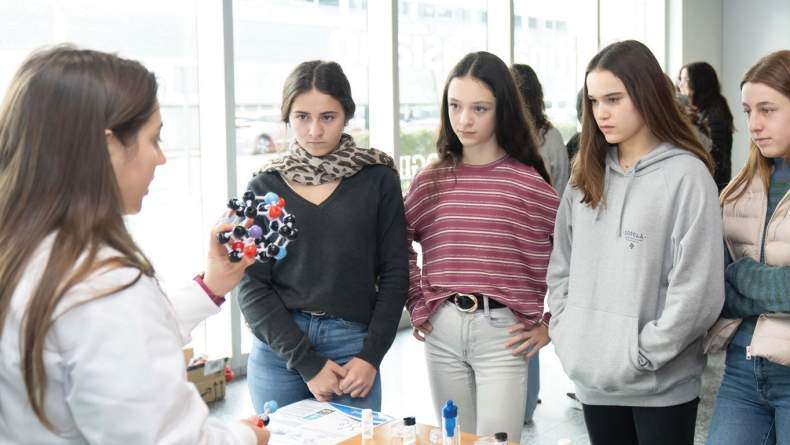Fortnightly Seminar: Virginia Vadillo and Meenakshi Pegu. High magnetization FeCo nanofillers for magnetorheological fluids applications /Top layer interface engineering of perovskite solar cells

Meenakshi Pegu´s seminar: Hybrid organic-inorganic perovskite solar cells (PSCs) have achieved an impressive power conversion efficiency (PCE) of 25.2% so far. We need to understand the paramount importance of the working mechanism of the device which is govern by various physical and chemical processes that is undergoing to improve not only the PCE, but also the long term stability. Hence, the interface engineering between the perovskite layer and charge transfer layer are among the important facets in determining the photovoltaic performances and long term stability. Herein, I would provide an overview on few of the recent advances in interfacial engineering of PSCs and then I would provide a discussion on the work that we have developed in our lab.
Virginia Vadillo´s seminar: Magnetorheological fluids (MRF) are stable suspensions of magnetic particles in a carrying fluid. One of their most important characteristics is their reversible rheological behaviour, which can be modified by application of an external magnetic field. As a first consequence, the behaviour of MRF (also called “intelligent” fluids) can be adapted to variable working conditions [1]. Magnetic filler parameters like particle size distribution or magnetic saturation value are of critical importance in the rheological behaviour of MRF [2]. In this work, I present results concerning the fabrication of a new magnetorheological fluid with FeCo magnetic nanoparticles (NPs) as magnetic fillers. These NPs have been fabricated by chemical reduction of FeCl36H2O and (CH3COO)2Co · 4H2O with AlF4- and show a pure crystalline phase with size in the 30-50 nm range and high magnetization, 212 ± 2 Am2/kg. These FeCo nanoparticles were used to synthesize a magnetorheological fluid by using oleic acid as surfactant, mineral oil as carrier liquid and Aerosil 300 as additive to control the viscosity of the fluid. The synthesized fluid showed a strong magnetorheological response with increasing shear stress values as the magnetic field intensity increases. Thus, we have measured a yield stress value of 2729 Pa at 616.7 kA/m, observing a good reversibility after demagnetization process.
The seminar will be held on Martina Casiano auditorium until complete de permitted capacity (35 people). It is important to follow the COVID rules (wear a mask, clean hands with sanitizer, keep distances between attendants) You can also follow it in streaming using TEAMS with the next link:
https://teams.microsoft.com/l/meetup-join/19%3ameeting_MThlZjBlZDItMzY3NC00NWU2LWJkMzMtOTBkN2VjNDg4ZGYy%40thread.v2/0?context=%7b%22Tid%22%3a%222f54ab68-83af-4d70-8895-a0d1e95ec899%22%2c%22Oid%22%3a%227778b4e1-e06d-485b-b530-cf013d4e9498%22%2c%22IsBroadcastMeeting%22%3atrue%7d
Related news
Sara Martín y Stefano Lunghi, nuevos investigadores de BCMaterials
Desde BCMaterials damos la bienvenida a dos nuevas personas que integran nuestro personal investigador. Se trata de Sara Martín Iglesias, investigadora post-doctoral en la línea de Materiales Activod...Nanomateriales para la descontaminación y valorización de aguas
Personal científico de BCMaterials desarrolla nanomateriales de última generación, combinados con membranas poliméricas de origen natural, destinados a la descontaminación y revalorización de aguas....Tres nuevos investigadores se incorporan a BCMaterials
El nuevo año ha traído a BCMaterials la incorporación de tres nuevos jóvenes científicos a su equipo. Se trata de los investigadores predoctorales Karen Cano y Mikel Russo y el investigador...Actividades de BCMaterials en Emakumeak Zientzian
Este año se cumple el 10º aniversario del comienzo de la iniciativa Emakumeak Zientzian, que reúne a más de 30 entidades vascas organizadoras de actividades de divulgación científica con motivo de la...



